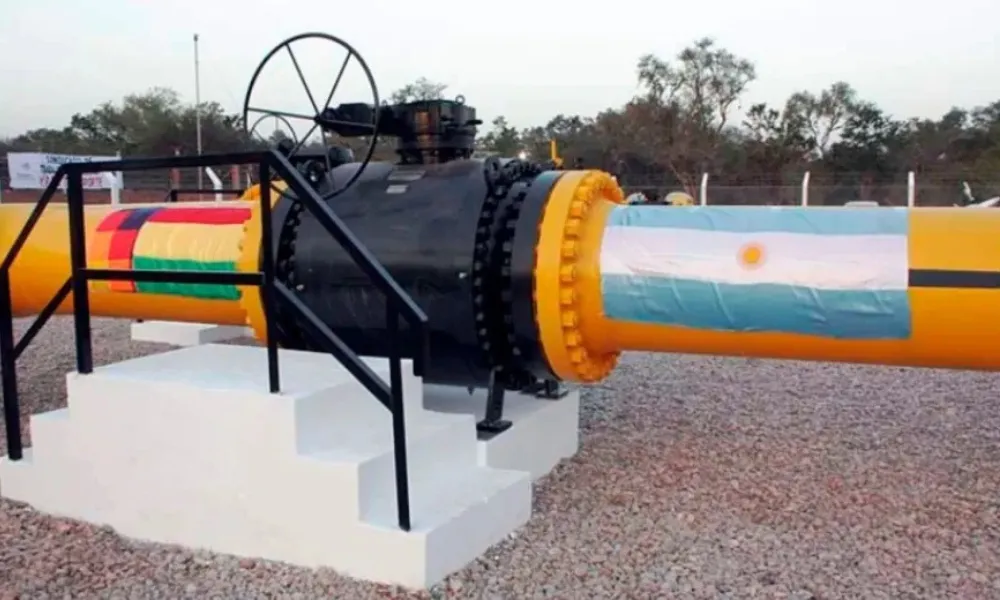Bolivia has taken a significant step in its energy sector by launching a new business model that will generate fresh foreign currency income: leasing its gas transportation infrastructure. This strategic move allows natural gas from Argentina’s Vaca Muerta shale formation to be transported through Bolivia to reach the Brazilian market.
Armin Dorgathen, president of the state-owned company Yacimientos Petrolíferos Fiscales Bolivianos (YPFB), announced this initiative, emphasizing that the operation could bring up to $200 million in annual revenue for Bolivia.
The project became a reality thanks to the collaboration of several companies, including TotalEnergies, Brazil’s Matrix Energy Group, and YPFB. The operation officially began on Tuesday, with an initial volume of 4.5 million cubic meters of natural gas transported daily.
“This is excellent news,” stated Dorgathen in a press conference. “The gas that we used to sell exclusively to Argentina can now also reach Brazil. We are earning foreign currency for the use of our pipelines. This is a concrete alternative to address the shortage of dollars our country is facing,” he explained.
Dorgathen clarified that this operation does not affect Bolivia’s current gas exports to Brazil. The country’s pipeline network has unused capacity, allowing it to be rented out to third parties without compromising existing contracts. Currently, Bolivia has the capacity to transport up to 35 million cubic meters of natural gas per day — a figure that could even increase if new agreements are signed or if the country’s Upstream Reactivation Plan (focused on exploration and production) progresses successfully.
Beyond the financial benefits, Dorgathen highlighted that this new business model positions Bolivia as a key logistical player in regional energy integration. By connecting two of South America’s main energy markets — Argentina and Brazil — Bolivia strengthens its role in the continent’s energy infrastructure.
Meanwhile, both Brazilian and Argentine authorities have welcomed this new commercial route. For them, it offers a temporary yet effective solution to diversify energy supply routes and ensure energy security during a time of global energy transition.
This strategy also comes at a crucial moment for Bolivia’s economy, which has been facing foreign currency shortages. The income generated from leasing gas transportation infrastructure provides the country with an additional source of revenue while maximizing the use of its existing energy assets.
Ultimately, Bolivia’s innovative approach demonstrates how countries can adapt their energy strategies to new market realities. By transforming from a simple gas supplier to a regional energy corridor, Bolivia not only diversifies its income but also strengthens its geopolitical relevance in South America’s energy landscape.
As energy markets evolve and the global transition to cleaner energy continues, Bolivia’s decision to open its infrastructure to neighboring countries may serve as a model for other resource-rich nations seeking new ways to generate income while fostering regional cooperation.
